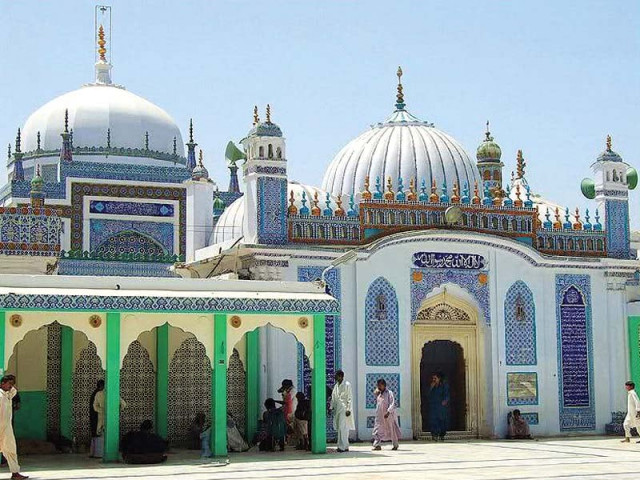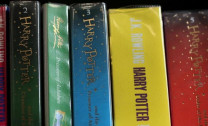Review: Glimpses of Shah Abdul Latif Bhittai
Hasan Mujtaba’s translated volume contains 100 poems by iconic Sindhi poet

Hasan Mujtaba’s translated volume contains 100 poems by iconic Sindhi poet
Born to Shah Habib in the village of Halla Haveli, Bhittai was raised during what is believed to be the golden age of Sindhi culture.
A self-educated man, he was well-versed in Persian and Arabic as well as the Holy Quran and Hadith. Along with the mandatory knowledge of the book, Bhittai was Hafiz-e-Masnavi-e-Maulana (a person who memorises Rumi’s Mathnavi). Impressions of this can be found in Bhittai’s poetry. According to some biographical accounts, he was also a calligrapher and made several beautiful copies of Quran. His linguistic and scholastic competence is not only found in his eternal verses but also in his correspondence with his contemporary Makhdoom Moinuddin Thattvi. These can be found in the Risala-i-Owaisi.
Edited and compiled by Sufi Laghari, Glimpse of Beloved is a testament to the universality of Bhittai’s verse, which Hasan Mujtaba has translated into English. Mujtaba, who is a brilliant poet himself, did not translate Bhittai’s verses by only keeping the formalistic aspects of translational process in mind. Instead he let the poet in himself be the interpreter of Bhittai’s verse. The technique does not boggle the reader with its verbosity but resonates directly with his or her heart through the sheer simplicity of its metaphors. An example of this can be found in the following verse:
Those who revise anguish,
Read lessons of pain,
Carrying the slate of thought,
In their hands, study silence.
They read the page,
By which they catch,
Glimpse of the beloved
Mujtaba’s translated volume contains 100 poems by Bhittai that encapsulate the themes of love, loss, pain and anguish. However, the most important poems in the volume are the ones that speak to the most defining evils of our time. In a series of poems titled Aggression, Of Mullahs, Ego, Lies on Sale, The Muslim, Mujtaba illuminates Bhittai’s disgust for dogma and the false rhetoric of the worldly knowledge. He presents an English equivalent of all that the world is facing today.
In his foreword to the book, JP Vaswani mentions a Bhittai song which he supposedly uttered when he was asked if he was a Shia or Sunni:
It is good to fast and read namaz,
But if you aspire,
To behold the Beloved,
You have to move,
On a different way.
In this verse, Bhittai disqualifies the idea of belonging to a certain brand of Islam. It paves an understanding of nothingness and surrender, which Rumi says (my translation from Divan-e-Shams) in a different style, corroborating a similar theme:
Love is beyond the divides of temporality and eternity,
And its depths are never absolute,
Love doesn’t reach the frozen hearts,
And its nothing except blessing and direction.
The religion of Love is of a different kind,
There is no tradition for anyone to follow.
In translating this pocket-size volume of Bhittai’s poems, Mujtaba has gifted the Anglophone readers a gem of South Asian literary heritage, which speaks to the hearts of people and invites them to reconnect with their feelings, an aspect of human life that’s deemed not so popular today. Although the translator has done a great deal in anthologising the poems in varied themes and it is a complete oracle of mystic wisdom in one’s hands, it would have been more helpful for the book to stand out if it were conceived as a large-scale collection of Bhittai’s work.
In our hectic lives of today, perhaps this pocket-size volume is handy in getting to know a giant-like Bhittai and being comforted and reassured by his great verse. In the meantime, one would hope to see Bhittai’s work translated for Anglophone readers, which would not only introduce Bhittai for his poetic grandeur but also make him an important poet to be studied as part of the intellectual history of 18th century South Asia.
Title: Glimpse of Beloved
Compiled and Edited by: Sufi Laghari
Translated by: Hasan Mujtaba
Published by: Center for Vedic and Dharmic Studies
ISBN: 9786021767962
The writer is a former AIPS junior fellow at the University of North Carolina, Chapel Hill and teaches literary studies at Kinnaird College, Lahore. She is currently translating and annotating Mirza Athar Baig’s novel ‘Ghulam Bagh’
Published in The Express Tribune, August 21st, 2016.
Like Life & Style on Facebook, follow @ETLifeandStyle on Twitter for the latest in fashion, gossip and entertainment.



















COMMENTS
Comments are moderated and generally will be posted if they are on-topic and not abusive.
For more information, please see our Comments FAQ